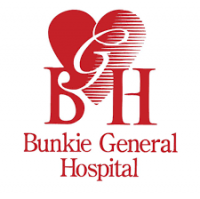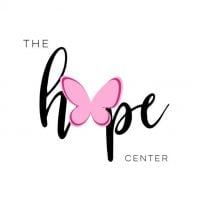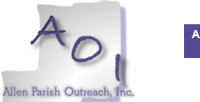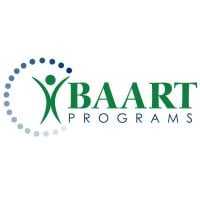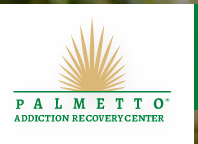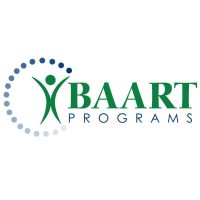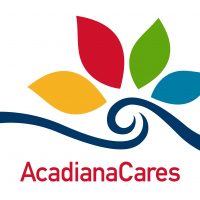About This Louisiana Facility
Bunkie General Hospital is a comprehensive behavioral health center that has been serving the Bunkie, Louisiana community with quality care since 1950. With a commitment to provide exceptional services that are tailored to meet the individual needs of its patients, this facility offers a range of comprehensive treatment programs, including residential and outpatient services aimed at addiction and substance abuse. The multidisciplinary team at Bunkie General Hospital consists of certified counselors, social workers, psychologists, and psychiatrists who are dedicated to helping individuals recover and live a healthier lifestyle.
At Bunkie General Hospital, patients can access a variety of services for addiction and substance abuse, such as individual and group counseling services, 12-step programs, educational workshops, relapse prevention, life skills training, and mental health support and services. These services are designed to help individuals develop healthy coping strategies, manage triggers and stressors that can lead to relapse, and develop the necessary skills and support to sustain long-term recovery.
Bunkie General Hospital is accredited by the Joint Commission and is a licensed provider of substance use disorder services by the State of Louisiana Department of Health. This facility has also received honors for its commitment to the community and for providing quality, individualized care to its patients. Bunkie General Hospital is dedicated to helping individuals and communities lead healthier lives and is proud to offer integrated treatment approaches and specialized care for addiction and substance abuse.
Genders
Ages
Modality
Additional
Conditions and Issues Treated
There are different kinds of Dual Diagnosis:. A person who simultaneously experiences both a mental illness and an addiction disorder. Or, a person who experiences one or more coexisting (simultaneous) mental health conditions in addition to a primary substance use disorder.
The treatment requires a multi-disciplinary approach, it’s crucial for individuals to partner up with a healthcare provider who understands all the recovery components.
Levels of Care Offered at Bunkie General Hospital
This center offers a variety of custom treatment tailored to individual recovery. Currently available are Dual-Diagnosis, Outpatient, with additional therapies available as listed below.
The outpatient programs in Bunkie, LA are for those addicted drugs or alcohol. The goal of the outpatient rehabilitation program is to make them stop abusing drugs or alcohol, reduce drug use or addictive behaviors, and become entirely sober. It is generally required to attend the outpatient program for 10-12 hours every week.
Patients can be administered on-the-spot medication to ease withdrawal symptoms such as anxiety, increased heart rate, and even depression. Groups such as Alcoholics Anonymous (AA) and Narcotics Anonymous (NA) can be used as a part of outpatient treatment to help maintain sobriety.
Therapies & Programs
People in addiction recovery can benefit from individual therapy. This type of therapy involves meeting with a therapist one-on-one. This allows for a personal and trusting relationship to be built so that the patient can be truly themselves and express any emotions they feel. Individual therapy leads to greater understanding and peace about your triggers for addiction and coping strategies to prevent relapse.
Family therapy is a type of group problem-solving that aims to improve communication and relationships between the patient, their family, and sometimes friends. The main goal of family therapy for drug addiction is to create an environment where communication can occur without judgment, hostility, or blame. The therapist is with the family as they learn to communicate with each other differently, especially with the addict when s/he is using.
Group therapy sessions are held in rehab facilities, clinics, churches or community centers that offer drug addiction treatment. People who attend these groups are encouraged to voice their feelings and support other addicts in recovery. This helps group members strengthen their own recovery program while cheering on others who are struggling with sobriety.
Group therapy sessions provide recovering addicts with a chance to cope with everyday situations that many face. Group therapy sessions are held in rehab facilities, clinics, churches or community centers that offer drug addiction treatment.
People who attend these groups are encouraged to voice their feelings and support other addicts in recovery. This helps group members strengthen their own recovery program while cheering on others who are struggling with sobriety.
If you’re looking for addiction treatment, it’s important to find a facility that offers trauma therapy. This type of therapy helps people process and understand the past traumas that have led to their addiction. Trauma therapists will work with clients to help them understand their past and present relationships and show them that they are worthy of love. This therapy is typically done using visualization, discussion, and writing down thoughts and feelings.
Trauma Therapy is a form of therapy that involves working with a patient to help them process and understand the past trauma(s) in their life. This therapy is typically done using techniques such as visualization, discussion, and writing down thoughts and feelings. The main goals of trauma therapy is to help clients express their emotions and talk about what they are feeling.
Dialectical Behavior Therapy (DBT) is a form of cognitive-behavioral therapy that helps people understand how they connect their thoughts, behaviors, and feelings. It can give them more control over their actions, effectively stopping self-harm ideations and attempts in some patients. It also helps put those with borderline personality disorder into control for managing mental struggles.
A new study has shown that DBT works for those with self-harm behaviors and addictions by giving them therapy they can relate to and understand.
Cognitive Behavioral Therapy (CBT) helps addicts identify faulty, negative thinking so that they can work together with the therapist to find healthier ways of thinking. CBT focuses on specific aspects of each person’s thinking, feeling, physiology, and behavior. It aims to identify specific problems in these areas, and create a personalized treatment strategy.
Addicts often experience intense cravings for sugary foods during recovery. By teaching addicts how to eat well and stay healthy, therapists can help them manage their cravings over the course of treatment.
During these sessions, Bunkie, Louisiana dietitians and therapists will offer advice about healthy eating options and teach addicts how to make specific changes in their diet that can help reduce the effects of cravings during recovery.This type of therapy is often used in conjunction with other types of addiction treatment services. By identifying specific triggers and developing strategies to help addicts avoid relapse, most individuals can overcome their cravings and stay sober for good after they finish rehab.
The first step to becoming a non-smoker is the choice to quit smoking. Nicotine replacement therapies are effective because they provide you with the nicotine you are addicted to without inhaling carcinogens from cigarettes.
There are several types of NRT. These include:
- Nicotine gum
- Nicotine patches (transdermal systems)
- Nasal spray
- Lozenges
The benefits to using NRT can include:
- Reduce the risk of heart disease and cancer
- Reduce the anxiety and irritability associated with quitting smoking
- Reduce the risk of type II diabetes.
- Improved fertility in women
Patient Experience
Experiential Therapy at Bunkie General Hospital
Experiential Therapy allows addicts to release emotions in a safe environment. The process involves addicts painting their feelings and releasing them on a canvas. LPE – Love, Peace, and Equilibrium is one of the most popular forms of experiential therapy.
Payment Options Accepted
For specific insurance or payment methods please contact us.
Additional Details
Specifics, location, and helpful extra information.
Bunkie, Louisiana 71322 Phone Number(318) 346-6681 Meta DetailsUpdated November 25, 2023
Staff Verified
Patient Reviews
There are no reviews yet. Be the first one to write one.
Bunkie, Louisiana Addiction Information
Louisiana is one of the top ten states in the nation for opioid-related deaths. One in ten high school students admits to regularly using prescription opioids for non-medical purposes. More than 225,000 Louisiana residents admit to regular heavy drinking and around 6% of the Louisiana population abuses alcohol. Marijuana use in Louisiana is most common amongst teenagers between the ages of 12 and 17 years old.
Treatment in Nearby Cities
- Chalmette, LA (149.3 mi.)
- Saint Francisville, LA (48.8 mi.)
- Slidell, LA (150.1 mi.)
- Ville Platte, LA (19.2 mi.)
- Columbia, LA (79.9 mi.)
Centers near Bunkie General Hospital
The facility name, logo and brand are the property and registered trademarks of Bunkie General Hospital, and are being used for identification and informational purposes only. Use of these names, logos and brands shall not imply endorsement. RehabNow.org is not affiliated with or sponsored by Bunkie General Hospital.
